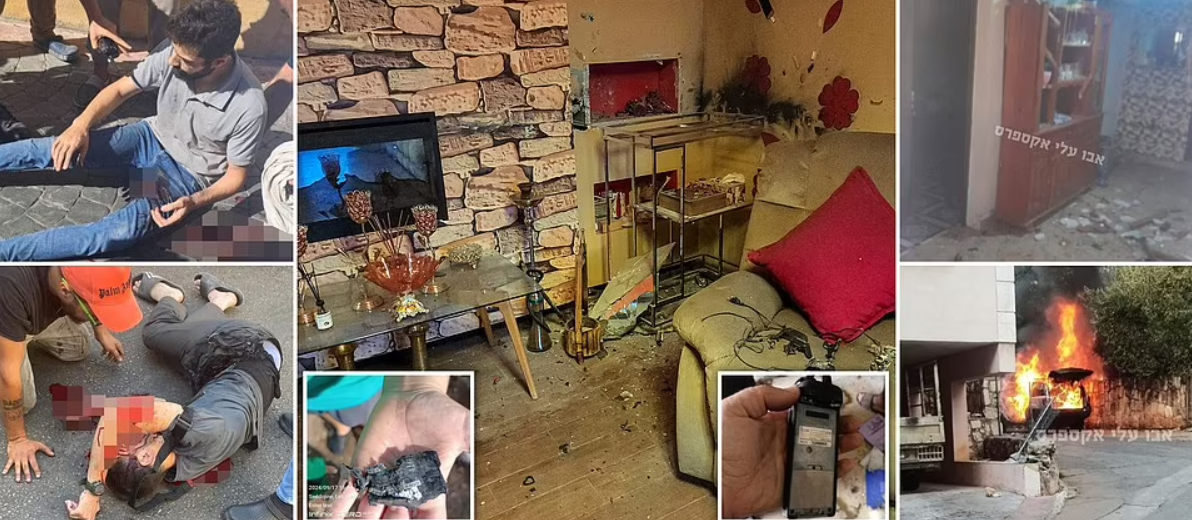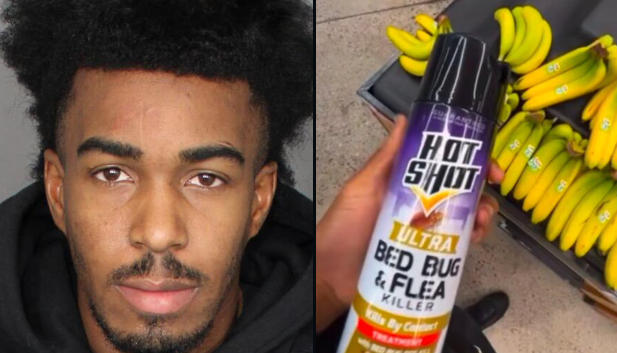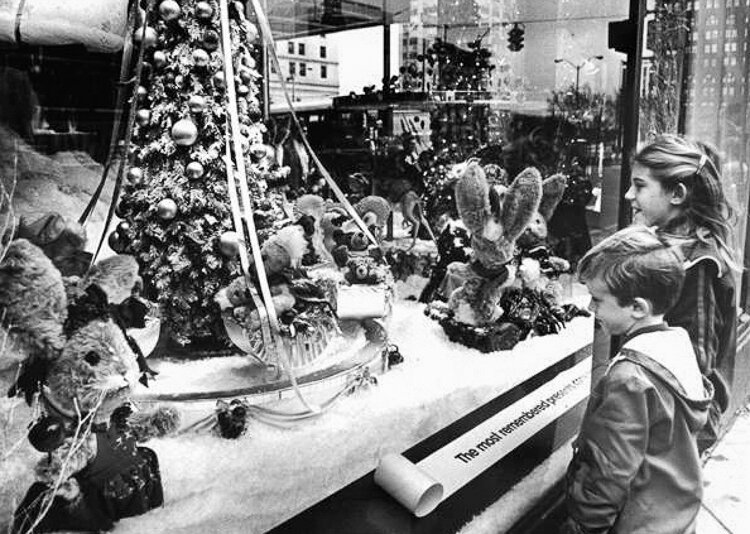
Thousands of walkie-talkies, solar panels and fingerprint recognition devices used by Hezbollah fighters have detonated across Lebanon in the past two days, killing 14 and wounding hundreds of people including mourners at a funeral.
The second wave of carnage comes a day after thousands of exploding pagers used by the group left almost 3,000 people injured and a dozen dead, including civilians and children.
Security sources confirmed that hand-held radios were purchased by Hezbollah five months ago, at around the same time as compromised pagers. Lebanese media has also reported that home solar energy systems have blown up in several areas of Beirut.
The ensuing panic has caused terrified residents to tear the batteries from their walkie-talkies and throw devices into the street in fear of more explosions.
In a sign of the alarm caused by the devices, the Lebanese Armed Forces have been carrying out controlled explosions of suspicious items – including bags of rice suspected to be rigged with explosives in a pit of the parking lot at the American University of Beirut Medical Centre.
The attacks amount to the biggest security breach in Hezbollah’s history, with the group and its backers Iran condemning Israel and labelling it ‘mass murder’.
Israel has since declared the start of a ‘new phase’ of war in the Middle East, with officials and experts warning of ‘serious questions’ around what may happen next.
When the dreadful sound of the explosions began, the women started crying. I was among the crowds at the funeral in Beirut yesterday for three men and a boy who had been killed 24 hours earlier when thousands of Hezbollah pagers had exploded in a coordinated attack.
Now it had started again. Two distinct pops, we heard, one coming from the ambulance that I assumed had brought the coffins to the funeral.
I saw a paramedic stumbling out of the vehicle which was billowing smoke. He collapsed and people rushed to help, but I was too far away to see how badly injured he was.
The Hezbollah officials present behaved as if nothing had happened but all of us felt it, heard it. We knew another attack was underway, though only later did we discover it was walkie-talkies and radios exploding this time.
As a journalist based in Lebanon, I have covered any number of conflicts and seen too many dead bodies. But nothing prepared me for the fear and carnage wrought by the events of the last two days.
Beirut has collapsed into panic. The WhatsApp groups are going non-stop. There are wild rumors doing the rounds that solar panels might explode, batteries, fridges – anything. There’s fake news saying phones have exploded. I know it’s stupid, but I even told my parents to get a fire extinguisher, just in case something blows up in the house.
We’re all really scared; there is no safe place anymore. Everyone knows what these explosions can do. In a Beirut hospital, I saw a man whose flesh had been torn from his face, the bones gruesomely visible. He was still conscious.
Doctors told me that faces and hands were the worst areas of injury.
Untold numbers have lost their eyesight as people were holding up the pagers to read messages when they exploded.
I was in a coffee shop on Tuesday afternoon in Ras Beirut, in the north west of the city, when I first realised something was wrong. I heard three pops, one after the other. Then my phone started going crazy. People were messaging me to ask what had happened, worried friends and family were calling.
My brother called to tell me he had heard lots of explosions and that the American University Medical Centre was overwhelmed. Most of the injured had been referred from other hospitals because of the extent of their wounds.
Outside, family members, barred from entry because of security, were crying and in shock. I watched dozens of people walk into the hospital with missing limbs. I saw people whose eyes had been popped out of their sockets. The scene was apocalyptic. The National, a leading newspaper here, spoke to a woman called Amal, who was waiting for news of her brother and cousins – they had been referred on from Bahman Hospital also in Beirut.
What she saw in Bahman had the makings of a horror film, she said. ‘There was blood everywhere, people without eyes, holes in their back and their hands covered in blood.’
Dr Elias Warrak, an ophthalmologist at Mount Lebanon University Hospital in Beirut, told the BBC the past 24 hours there had been ‘a nightmare’, adding that more than 60 to 70 per cent of the patients being treated ended up with at least one eye removed. A doctor I spoke to yesterday said he had performed 70 operations since the attacks began.
I drove on my motorbike to my home suburb of Dahiyeh in the south of Beirut. The streets were heaving with traffic; the ambulance sirens were deafening.
When I reached my own neighborhood I found people screaming, shouting. A couple of older men grabbed me and told me to go home and turn off all my WIFI routers and anything connected to outlet that could be remotely detonated.
People used to think if they were affiliated with Hezbollah but not fighters, they were effectively safe. But this changes everything. The pager attacks happened in areas where you thought they could never happen – Christian areas, for example. But Hezbollah are everywhere in Lebanon and you can’t know who is who.
The attacks also happened on an average Beirut afternoon. The victims included a man in an ice-cream shop where children saw it happen; someone was in a grocery shop when his bag exploded damaging his internal organs; there were pagers in family homes where the shrapnel injured the children after they exploded.
There is one small silver lining, perhaps. The attacks have brought a sense of togetherness across the country. People from Sunni and Christian neighborhoods have been queueing to donate blood. Even those who loathe Hezbollah have condemned this attack. But as a Lebanese person, the last two days have left me deeply saddened. There is a sense of fear that I’ve never felt before. And if these attacks continue, that fear will only grow.



